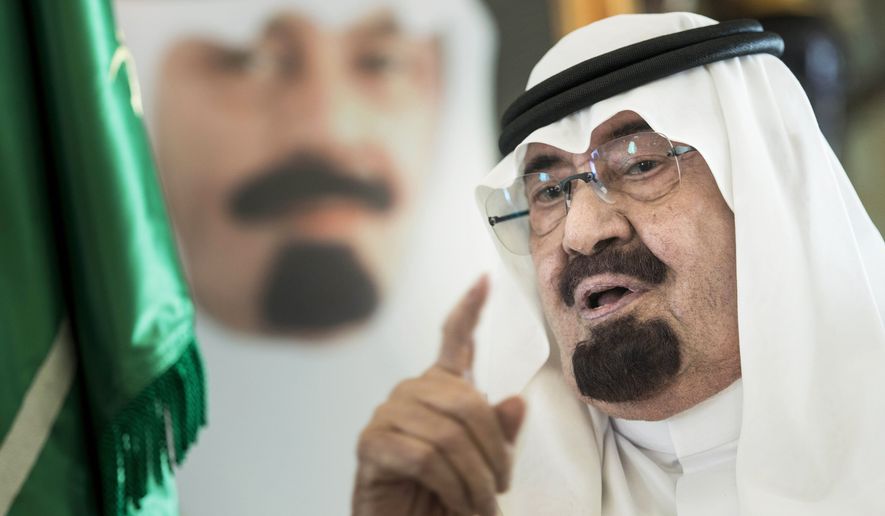Last Wednesday, Saudi King Abdullah Bin Abdul-Aziz praised the “wise attitude” of Shiite leader Grand Ayatollah Sayyid Ali al-Sistani, only weeks after sentencing another Shiite leader, Sheikh Nimr, to death on largely sectarian grounds for “foreign meddling” and “disobeying” the king. Sheikh Nimr’s relatives have also been given the death penalty for related offenses. The king belongs to the Salafi sect, which is well known for its antipathy to Shiite teachings and practices. The alternative praise of one Shiite leader, but death penalty for another has many analysts scratching their heads on Saudi’s true stance on Shia Muslims.
In another example of self-contradictory behavior, Saudi Arabia is widely believed to be engaged in a proxy war against Iran, a Shiite country, using Syria as a battleground. Saudi is seen as supporting radical rebel forces in their battle against the Syrian government and Shiite paramilitary groups. The conflict has left thousands dead and lead to the rise of ISIS and the Nusra Front, who view themselves as ideological successors to Al Qaeda.
Conversely, the New York Times reports that “Saudi Arabia on Tuesday swooped in to address the humanitarian crisis caused by the Sunni insurgency in Iraq, providing $500 million to the United Nations to help the more than one million Iraqis whose lives have been uprooted by the mayhem of recent weeks.” Shiites make up a large number of those displaced, and its openly accepted that Saudi is supporting the Shias of Iraq against the Salafists of ISIS.
Last month, terrorist gunmen opened fire on Saudi Shiites during their annual Muharram practices, which commemorate the death of Imam Husain, Prophet Muhammad’s grandson.
According to the New York Times, “Saudi Arabian security officials moved aggressively on Tuesday to crush an outbreak of anti-Shiite violence, arresting 15 people in six cities and killing two others in connection with what the Interior Ministry called a terrorist ambush on mosque worshipers in a minority Shiite community.
“At least two security officers were killed and two wounded in the crackdown on the suspected mosque assailants, who were armed with pistols and machine guns, the Interior Ministry and government-run Saudi news media reported.”
The quick show of force by the Saudis in pursuing anti-Shia terrorists was widely praised, but did little to alleviate the country’s self-contradictory stance on the sect. This past August, Sheikh Abdul Aziz Al-Fawzan, a Saudi Salafi scholar and a member of government sponsored Human Rights Commission paradoxically accused Shiites of leading ISIS in their attacks on Sunnis, despite the fact that ISIS is a self-avowed “anti-Shia” organization. ISIS leader Abu Bakr Baghdadi has publically referred to Shiites as “apostates” and ordered widespread attacks against the sect. Sheikh Al-Fawzan was not removed from the Commission and did not retract his remarks.
In a report, the Crown Center for Middle East Studies stated “At the end of 2006, for example, several dozen Saudi clerics along with their counterparts in Iraq circulated a petition inciting an intensification of sectarian violence against the Shiites.” While government officials did not officially support the calls for violence, they did prefer “prefer that the Shiites renounce their ’fallacious’ beliefs voluntarily and embrace ’the right path’ of Islam.”
This year, further muddling the country’s stance, Saudi scholars are denouncing the scourge of sectarianism, urging tranquil relationships between Salafis, Sunnis, and Shias.
Domestically, Saudi Arabia has long been criticized for its stance on native Shiites. In 2009, Human Rights Watch released a report saying “Saudi authorities should treat minority Shia Muslims as equal citizens… The Saudi government also should create commissions to investigate arbitrary arrests of Shia and to recommend steps to end systemic state discrimination, Human Rights Watch said.”
The report continues, “The government should also establish a commission to explore the sharing of holy places among Muslims of differing creeds, especially in Mekka and Medina, Human Rights Watch said. King Abdullah has made some moves toward religious tolerance, but the discrimination by state institutions has not ended.”
Saudi Arabia has famously demolished the Jannatul Baqee mausoleums, noted for holding the graves of many notable members of Prophet Muhammad’s family. Responding to the destruction, a group called Al Baqee Organization hosts an annual protest in front of the Saudi Embassy in Washington D.C., calling for the kingdom to halt its destruction of historical monuments.
While it is unclear what Saudi Arabia’s stance is on the Shiite Muslim sect, it is mostly agreed upon that the current treatment of the minority is in need of drastic improvement.




Please read our comment policy before commenting.